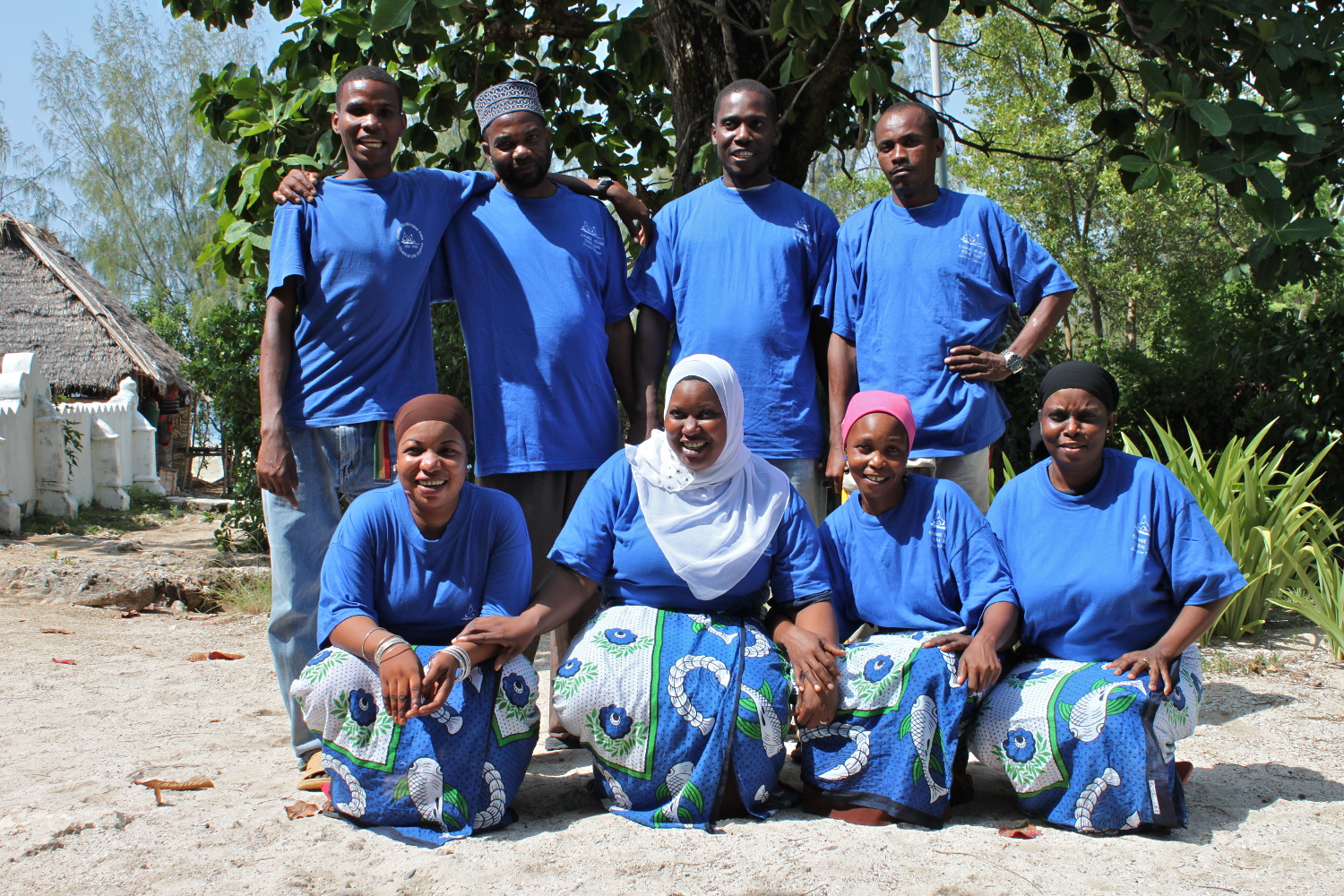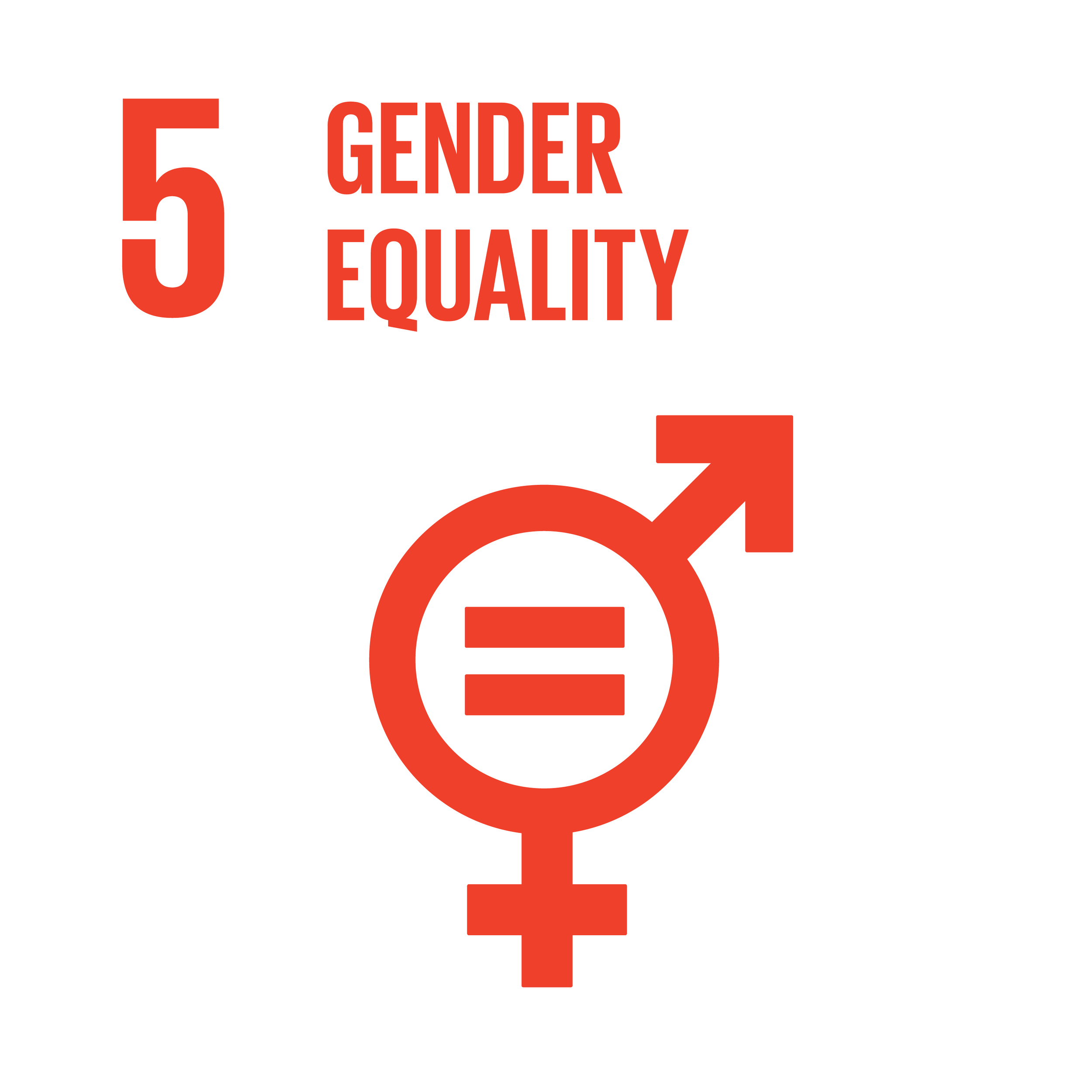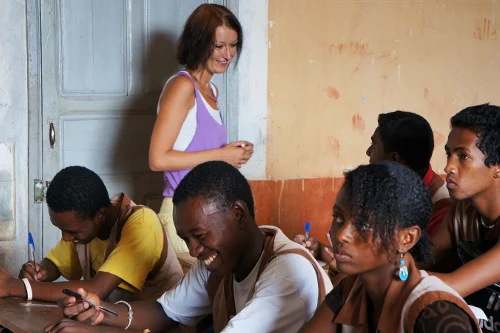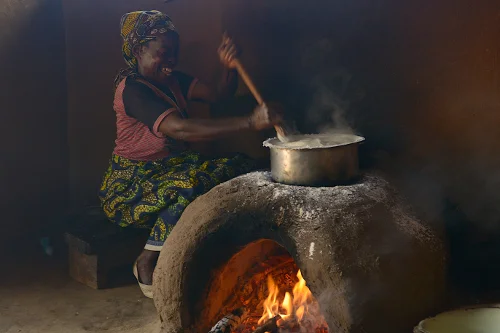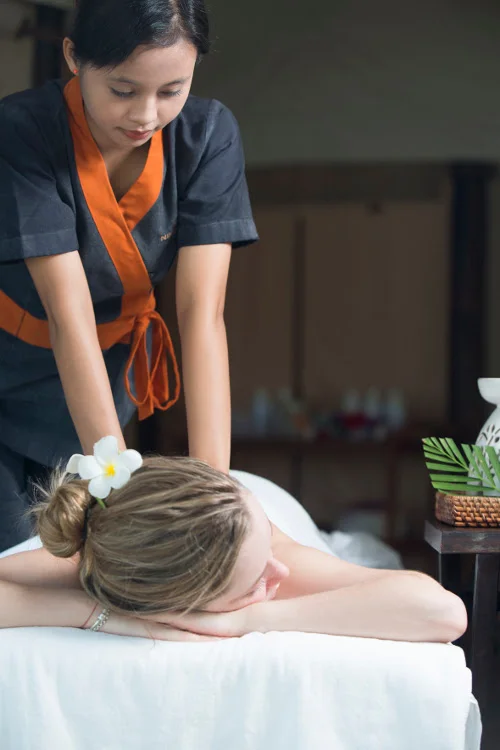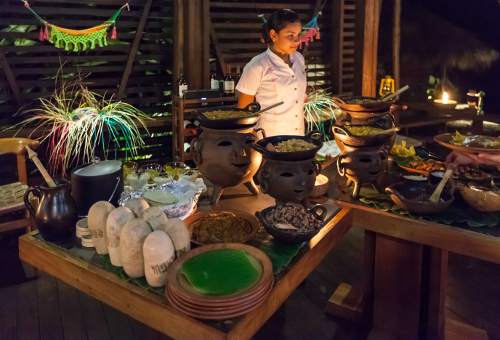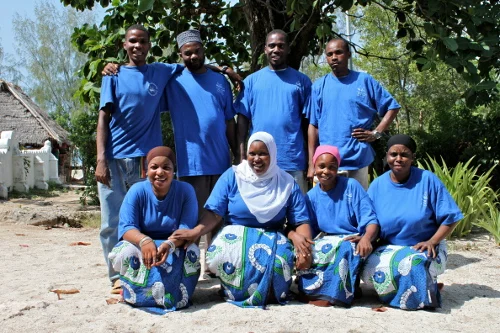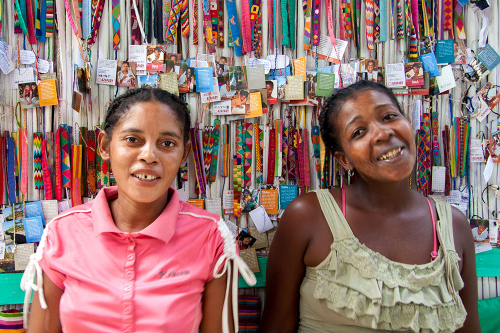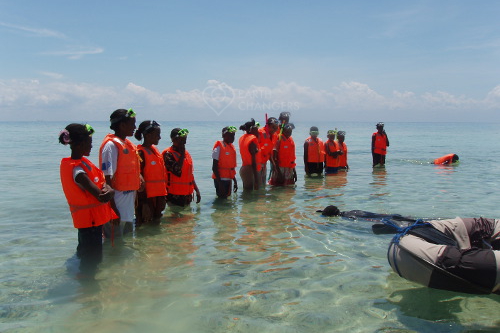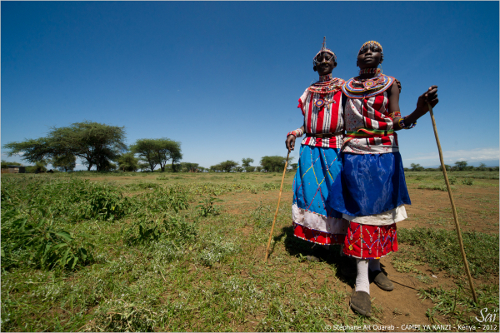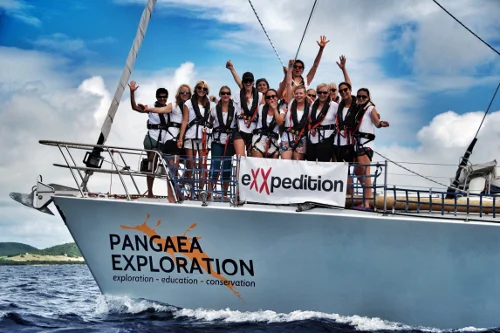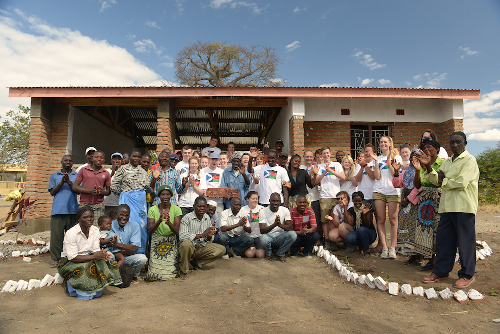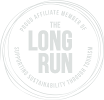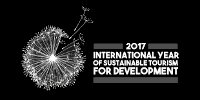The sex ratio for the world population is 101 males:100 females*
Yet, in every country of the world, women still suffer some form of direct or indirect discrimination.
Gender equality is a fundamental human right, but still only 143 of 195 countries have constitutionalised gender equality, and worldwide women suffer exploitation, violence, harmful practices and lesser rights and access than male counterparts to resources, ownership, control and finance. It’s proven that empowering women and girls helps economic growth and is required for sustainable development; attempts to tackle the climate crisis fail when gender issues are not addressed. (*CIA Factbook)
For this reason, Goal 5 of the UN 17 Global Goals of the 2030 Agenda for Sustainable Development is:
SDG #5 “Achieve gender equality and empower all women and girls.”
Empowering the female gender to reach full potential requires equal opportunities and equality.
Better access to paid employment, sexual and reproductive health and rights, and decision-making power in public and private can ensure development is equitable and sustainable. In many areas of the world, this has not been the case to date, although the situation is improving. Tourism can help play a major role in equality and empowerment.
Progress on Sustainable Development Goal 5 Gender Equality
While some indicators of gender equality are progressing, the gender inequality continues to be high. Insufficient progress on structural issues at the root of inequalities (legal discrimination, unfair social norms and attitudes, decision-making on sexual and reproductive issues and low levels of political participation) are undermining the ability to achieve SDG 5. (Source data: UN)
750 million women and girls total alive today married before their 18th birthday; globally 20.2% of women aged 20 to 24 years.
300%: Women spend, on average, three times as much time on unpaid domestic and care work as men (data from 89 countries).
200 million: girls and women have been subjected to FGM in 31 countries where the practice is concentrated.
77%: Women worldwide earn 77 cents for every dollar earned by men in the same work.
66%: Two thirds of developing countries have achieved gender parity in primary education.
60%: Countries give equal rights to women to financial serices (UNDP, 2020).
55%: Women married or in a union can freely make their own decisions about sexual relations, contraceptive use and health care.
49: The number countries that lack laws protecting women from domestic violence.
42%: Countries give equal rights to women to land ownership (UNDP, 2020).
41%: Women in paid employment outside agriculture (2015, rising from 35% in 1990) but only 20% in Northern Africa
39: The number of countries in which daughters and sons do not have equal inheritance rights;
35%: or 1 in 3 women have experienced physical and/or sexual violence.
28%: Managerial positions held by women, yet they make up 39% of the workforce: More barriers to get work and make decisions.
25%: National parliamentary seats worldwide held on average by women (varies 6.2% to 30%), with 36.3% for local govenment: Only 13% and 15% of countries, respectively, have reached gender balance (40% or more) in legislative bodies nationally and locally.
18%: Ever-partnered women and girls age 15-49 have experienced physical and/or sexual violence by an intimate partner in the last 12 months (2005-17): less than 40% of women report the crime or seek help, and women’s mobiles are more likely monitored by partners.
18: The number of countries in which husbands can legally prevent their wives from working.
13%: Agricultural landholders are women.
The Impact of Covid on SDG 5 Gender Equality
70% of health & social workers are women: on the front line for Covid.
Women bear additional burdens in the household during the pandemic: such as with school closures and increased needs of elderly.
Coronavirus exacerbates existing inequalities for women and girls – from health and economy, to security and social protection.
Economic impacts hit harder, as women disproportionately work in insecure labour markets: Nearly 60% in the informal economy, putting them at greater risk of falling into poverty.
Lockdowns increase the risk of violence against women and girls: by up to 30% in some countries, as women are trapped at home with their abusers, struggling to access services that are suffering from cuts and restrictions.
Childhood forced marriage could increase due to school closures and widening poverty as a result of the pandemic.
Interruption by Covid of programmes to support gender equality and end practices like FGM could threaten prior progress.
Women need leadership representation in pandemic issues critically to avoid deepening existing inequalities.
Challenges of SDG5, Gender Equality
Child marriage before the age of 18 is a human rights violation, mostly affecting girls, and can lead to a lifetime of disadvantage and deprivation. Most common in sub-Saharan Africa (34.5%), as most declines has been driven in South Asia, where a girl’s risk of marrying in childhood decreased by about 40% since 2000; and 25% between 2013 and 2018.
Female Genital Mutilation: A human rights violation. Between 2000 and 2018 in the 30 countries where the practice is concentrated and is an entrenched social norm, it has declined by more than 25%, where now more than 1/3 girls aged 15-19 have undergone the procedure, versus 1/2 in the mid-1980s. However, in some countries FGM is almost universal – affecting at least 9 in 10 girls and women aged 15-49. Even in countries where the practice has become less common, progress would need to accelerate by a factor of 10 to meet the global target of elimination by 2030, owing to population growth.
Physical and/or sexual violence: Data from 106 countries shows the prevalence of physical and/or sexual partner violence is highest in Least Developed Countries, at 24%. (PwC, Navigating the SDGs, 2016).
Sexual and reproductive health and rights: Just under half of women aged 15 to 49, married or in union, don’t make their own decisions about sexual relations and the use of contraceptives and health services: Inequality that puts women at increased risk of acquiring HIV, the leading cause of death for women of reproductive age worldwide.
In education, worldwide, most of the adults (aged 15+) who were unable to read and write are women; more girls are out of school, compared to boys.
Unpaid and domestic work: Women devote more hours a day to unpaid care and domestic work than men, limiting the time available for paid work, education and leisure and further reinforcing gender-based socioeconomic disadvantages. The gender gap widens when women are most likely to have young children at home.
Women in STEM (science, technology, engineering and maths sectors, including health professionals), are still only 13% of the workforce, despite significant progress. Women are also underrepresented in the sporting community and all-female events receive significantly less coverage in the media compared to equivalent all-male events. (Exxpedition, 2017).
In law and legal protection: From data collected across four areas of law in 2018 from 53 countries, almost a third have legal gaps in the area of overarching legal frameworks and public life (e.g., constitutions, anti-discrimination laws, quotas, legal aid); more than 25% have legal gaps in the area of violence against women; and 29% and 24% respectively have legal gaps in the employment and economic benefits area and in the marriage and family area.
Gender-based exploitation also hampers climate crisis attempts to repair and adapt to environmental degradation, and in turn climate change is increasing violence against women and girls. Where extreme weather puts the natural environment under stress and intense competition for resources, links between gender-based violence, environmental crimes such as wildlife poaching and illegal resource extraction, and sex trafficking and violence rise. Sexual violence is used to suppress environmental activists, to undermine their status within a community and discourage others. Yet few projects for climate or conservation recognise this. Gender equality therefore must also be at the heart of any viable strategies on the climate and ecology. (IUCN, 2020)
Gender inequality persists worldwide, depriving women and girls of their basic rights and opportunities, exacerbated during disasters.
“The achievement of full human potential and of sustainable development is not possible if one half of humanity continues to be denied its full human rights and opportunities”
There cannot be sustainable development if there is no gender equality, integral to each and every sustainable development goal. Women’s empowerment is a precondition to solving poverty and resource issues and peace. Equality will require vigorous efforts and legal frameworks, to counter deeply rooted gender-based discrimination. Thankfully, social norms can and do change.
(In)Equality in tourism
In most regions of the world, women make up the majority of the tourism workforce, representing 55.5% hospitality globally, up to 70% in some regions (International Labour Organization).
That said, women in tourism tend to be in the lowest paid and lowest status jobs, and women perform a large amount of unpaid work in family tourism businesses (UNWTO and UN Women).
It’s also of note that women “also tend to work exclusively with women. Such gender segregation affects pay, access to training and, hence, to better paid work” (Equality in Tourism).
"More must be done to close the gender gap, in particular ensuring equal pay for men and women for equal work, raising employment quality and ending all discrimination."
- Taleb Rifai, Secretary-General, UNWTO, 2011
How can Tourism help achieve Gender Equality for Women and Girls?
“You can offer women jobs in the hospitality industry, assure fair access to microcredit; invest in training; promote mentorship, and feed the media with success stories of women entrepreneurs in the tourism sector who have made a difference in their communities.”
- Michelle Bachelet, Executive Director of UN Women at First International Congress on Ethics and Tourism, September 2011.
Tourism can empower women in multiple ways, particularly through the provision of jobs and through income-generating opportunities in small and larger-scale tourism and hospitality related enterprises.
As one of the sectors with the highest share of women employed and entrepreneurs, tourism can be a tool for women to unlock their potential, helping them to become fully engaged and lead in every aspect of society.
Here’s what some of the Earth Changers around the world are doing to support gender equality and empowerment:
Gender balance in the work force
One of the reasons RSC decided to set up in Malawi is that he country is supportive of gender equality.
At Chumbe Island Coral Park, women are strongly supported to bring gender equality, and currently form 40% of the workforce.
Women were included in the labourers that build Tiger Mountain Pokhara Lodge, a community workforce which has since trained to be retained into different positions at the lodge.
Equal opportunities for women in business
At Chumbe Island Coral Park, a women’s cooperative produces all the organic soaps used in the banda bungalows.
Jicaro Island Ecolodge support a group of local women to set up a business sewing clothes for sale.
SEED Madagascar’s Stitch Sainte Luce trains women in producing and selling high quality embroidered products, language and business skills to provide a sustainable livelihood. Initially, 11 women were trained in embroidery and finance, allowing them to manage the £4000+ they made in commissions and going on a train a further 37 “associate embroiderers”.
A second project phase saw 12 more women trained, and sales increased by 48% via better marketing. Its 3rd phase as a standalone business added a studio & shop showroom purpose-built in 2015. As an independent cooperative, from 2020, 90 members have now disseminated their skills to the wider community. Drawing inspiration from local wildlife and traditional Malagasy culture, their products can now be found all around the world.
As a result, the women and their families’ health improves, able to buy better food, go to the doctor more often, and their children’s ability to attend education. They also support others in the community - an average of 11 extra people per woman.
Equal access to finance
In Malawi a village banking initiative offers small financed loans and education projects for women to set up in business and train.
Equal opportunities in education and training
Education helps women access employment, income, and greater economic equality, both personally and professionally, the increased education of girls accounting for over 25% growth in OECD countries over the past 50 years. Universal access to quality higher education brings lifelong learning opportunities and wealth disparities.
In Muslim Zanzibar, Chumbe Island promotes gender equality through its Environment Education programme: Between 2000 and 2015, 48% of student visitors were girls. In a country where women never normally learn how to swim, Chumbe offers a unique opportunity to learn to snorkel and see coral reef. The popularity of the programme is demonstrated in increasing applications and yearly trips and extended in 2015 through their first grassroots soccer camp.
Grootbos Foundation’s farm, Siyakhula - meaning ‘growing the future’, provides entrepreneurship and enterprise development skills and income for women from the nearby township, as well as supporting food security.
Tiger Mountain Pokhara Lodge’s school support has not only enabled classes to be taught to School Leaving Certificate level locally, but this means female students who would otherwise not go away, can complete their education.
When the lodge was built, the local village permitted the lodge the use of a nearby spring to be fitted with public taps. This not only benefitted the community in local access to water, but also meant girls had more time for education, previously spending much more time fetching water from a distant source.
Female health support
In Kenya, MWCT hold regular friendly youth sports tournaments to encourage health education, promotion, awareness and counseling including for Female Genital Mutilation (FGV) and HIV/Aids, including voluntary testing.
SEED Madagascar’s health education works with young people to raise awareness of safety prior to establishment of sexual practices, which can be as young as 11 in the region. And with women to offer increased access to quality sexual, reproductive and maternal health information, increasing awareness of healthy practices during pregnancy and birth.
Women vital in cultural preservation
At Campi ya Kanzi in Kenya, it was realised the Maasai girls were losing the ability to bead. Older Maasai ladies were employed to teach the girls beading, with the handicrafts sold in the shop, later augmented with more Kenyan jewellery, clothing, books, bags and other handmade arts and crafts, bought locally at fair prices.
Women as positive role models
In 2017, Exxpedition charted an all-female crew on a 3-part mission to circumnavigate the British Isles, to explore the issue of chemicals, endocrine disruptors and carcinogens in our personal and global environment, sampling the waters for plastics and toxics. You can join further trips planned with their Pangaea Exploration partnership.
Less women in science, technology, engineering and maths (STEM) is one reason for the all-female crew. Additionally, historically, studies on the effects of chemicals on human health have largely focused on the specific effects on men (Exxpedition, 2016), as they made up the majority of the workforce where occupational studies have taken place, or because effects can often be more easily determined in men compared to women. As a result, research on female-specific diseases has held a relatively low profile. This imbalance in research is becoming increasingly important as the incidences of fatty tissues (where plastic toxics accumulate) and non-communicable diseases, such as cancers, are increasing, and we seek to understand the effects on hormones, fertility, birth defects and the passing of chemicals from mother to child.
As women are also underrepresented in sailing, the wider sporting community all-female events receive significantly less coverage in the media than all-male events, the eXXpedition crews of inspiring females are assembled to help redress the balance.
Women’s Empowerment
There are fantastic initiatives that look to redress gender inequality in tourism by showcasing women’s work or helping female tourism workers, often in very male-dominated societies.
Through tourism, women can be offered equal opportunities in education, work, income, skills development and equal access to resources, technology, ownership, control and finance can play a huge part in empowering women to take a more active and equal role in society, along with changing attitudes to greater acceptance, and so less exploitation and discrimination.
There is still much to be done!
“There is no tool for development more effective than the empowerment of women.”
Links with the other Sustainable Development Goals
Gender equal opportunity is core to major challenges the world faces and integral to all the Global Goals, especially interlinked with:
Goal 1 - End Poverty: Tourism provides jobs, income and entrepreneurial opportunities at community level, empowering less favoured groups such as women, and all in areas of a country that other sectors might not reach.
Goal 2 - Zero Hunger: With women working and earning their own income, families tend to be better fed.
Goal 3 - Health & Well Being: Globally, women face gender-based inequalities, putting them at increased risk of HIV, violence and death.
Goal 4 – Quality Education: Universal access requires elimination of gender disparity, for lifelong opportunity for jobs and economic equality.
Goal 6 - Clean water access and sanitation: Women and girls’ time is often consumed carrying water for distance and looking after children with ill health due to poor sanitation. Access can buy time for women in education and work.
Goal 8 - Decent Work and Economic Growth: ‘Full and productive employment and decent work for all’ means equal pay for work of equal value for women. This is important for equality, and greater purchasing power by women, leads to economic growth in new sectors.
Goal 9 - Industry, innovation & infrastructure: There can be no inclusivity, resilience and sustainability if one half of humanity is denied rights and opportunities.
Goal 10 - Reduced inequalities: By supporting equality in employment, and pay, women can contribute to renewal & development, reducing regional imbalances by giving communities the opportunity to prosper.
Goal 11 - Sustainable Cities & Communities: Inclusive, safe, resilient and sustainable communities good for women are good for all citizens.
Goal 13 - Climate Change: Women are among the most vulnerable to the climate crisis. Extreme weather adds stresses, greater scarcity of food and leads to greater violence against women. Sexual violence is used to suppress and discourage environmental activists.
Goal 16 - Peace, Justice & Strong Institutions: Inclusive societies help promote peaceful sustainable development, and are vital for post-conflict stability and socio-economic growth.
Goal 17 - Partnerships can support women’s empowerment and entrepreneurialism.
Next: SDG 6 Clean Water & Sanitation >
< Quality Education SDG4: Previous
